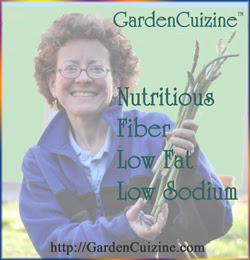Friday, September 28, 2018
What is Konjac? #GardenCuizine #guthealth #weightloss #diabeticfood #WLS
People who want to control or prevent diabetes, obesity, or who just want to succeed at weight loss, have discovered that a healthy diet and lifestyle are the keys to success. Healthy eaters never get bored from discovering new foods. Have you ever tried a food made with Konjac? Just what is Konjac anyway?
Low carb and no carb foods are popular with Keto and Paleo dieters. Personally, the clients I see that inform me they started trying a keto diet never really get to the stage of ketosis; we can talk more about ketosis another time. Just know that I do not recommend a ketogenic diet for the average person whose is looking to lose weight.
Eating and cooking with lower carb foods and balancing carbohydrate intake throughout the day is always a winning strategy for glycemic control and weight management. Foods made with Konjac are often near zero calories and zero carbohydrates.
Studies have shown that Konjac may promote increased butyrate, which improves gut health. And, people with diets low in fiber who suffer from constipation may notice improved bowel movements since Konjac is high in dietary fiber [1].
Knojac comes from a large plant native to China with the botanical name of Amorphophallus konjac. The corms (tuber-like roots) can grow to 10-inches and are the part that is harvested for use in foods. Konjac is most popular in Asian cuisine in flour, jelly, Konnyaku (yam cake) and Shirataki noodles.
Doesn't a food with no calories or carbs sound magical or like every dieter or diabetics dream food? Maybe that's why a noodle brand calls their noodles made from konjac "Magic Noodles." Often noodles made from knojac are packed in water with instructions to buyers to rinse them well before using.
Reviews from people who have used Konjack noodles are all over social media. So check them out or try them for your self and let me know what you think.
Happy and Healthy Cooking!
Diana
References and photo credit
[1] Chen, HL; Cheng, HC; Wu, WT; Liu, YJ; Liu, SY (Feb 2008). "Supplementation of konjac glucomannan into a low-fiber Chinese diet promoted bowel movement and improved colonic ecology in constipated adults: a placebo-controlled, diet-controlled trial". Journal of the American College of Nutrition.
Photograph: By James Steakley [CC BY-SA 3.0 (https://creativecommons.org/licenses/by-sa/3.0)
Subscribe to:
Comments (Atom)




























